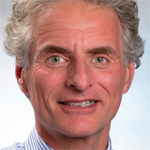
To help bring services to rural areas, some rheumatologists are taking a page from ministers and judges in the Old West. Circuit-riding physicians go from hospital to hospital to provide access to services in areas that might not have coverage any other way.
Robert Jackson, DO, is president of Premier Specialty Network (PSN) and a rheumatologist practicing at nine hospitals in Missouri and Iowa. PSN partners with local hospitals to establish satellite clinics staffed by top-level doctors. “I am a small-town kid who went to a small college,” he says. “After medical school, I was drawn back to the rural lifestyle and the fact that the presence of specialists is crucial to maintaining their healthcare system. There is a valuable mission to be served.”
Long-term Commitments
Under the PSN model, long-term contracts are signed with the participating hospitals and doctors. Most places do not have the population to support a full-time specialist, but are able to justify expenditures on a part-time basis. These allow the physician and the hospital to develop and cement relationships in the community. PSN has had doctors and hospitals working together for more than 20 years.
“Sometimes, rheumatologists come to a local community, build up a practice, and then return to urban settings, hoping their patients will follow,” says Dr. Jackson. “Our physicians insinuate themselves as much as possible into their communities, helping with staff and public education as well as simple things such as getting their oil changed locally.”
The Marshfield Clinic provides care at more than 50 locations and two hospitals in Wisconsin. They use a staff model where the specialists are directly employed and practice at Marshfield-owned clinics. Their physicians also see patients at outreach facilities in other areas.
Treating the Untreated
“Some of our patients don’t have the wherewithal to drive even an hour to get to one of our clinics,” says Jerry Goldberg, MD, a staff rheumatologist at Marshfield. “Before we came, many had long-standing rheumatic disease that was entirely untreated. They just lived with their illness and functioned as best they could.”
Both models seem to provide satisfaction to the community, patient, and the physician.

“Most physicians in rural areas don’t interact often with specialists,” says Anne Winkler, MD, vice president for PSN based out of Springfield, Mo. “When we come in, we are able to help raise the quality of care in the area by not only seeing patients, but also interacting with local physicians. One of the advantages is that the practitioners are seeing how rheumatic disease might be treated differently. Hopefully, this helps them do a better job.”

